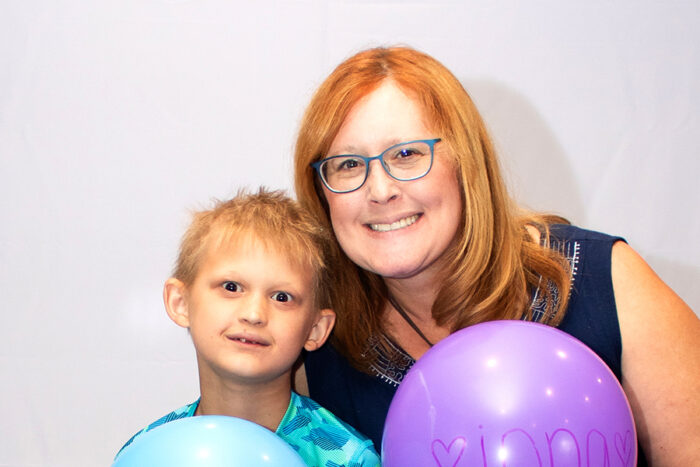By Beth Orchard
What Is Mental Wellness?
Mental wellness sounds like a catchphrase because we hear about it more often in the news and in our social feeds. We may even discuss it with the people around us, but really, mental wellness is about how we take care of the mass of synapses, memories, and experiences in our heads, and that can carry a lot of weight sometimes. Living with, caretaking for, and supporting loved ones with a rare condition like ectodermal dysplasia can be a challenge.
Awareness of Mental Wellness & Ectodermal Dysplasias Is Challenging
Even though I knew I carried the X chromosome that could pass on x-linked hypohidrotic ectodermal dysplasia (XLHED) to one of my children, Liam being affected by XLHED has changed our lives in many ways. I was bullied as a little girl for my pointy teeth and sparse hair. I knew I wanted to help Liam as much as possible and I spent a lot of time in therapy before giving birth. But, I still struggled with depression and anxiety after he was born with XLHED.

Liam not only struggles to sweat but needs constant help with chewing, eating, getting dentures, and was diagnosed with persistent, chronic asthma very early in his life. He is only nine and still struggles with asthma, along with not sweating. We have been to the ER and inside of hospitals, visiting specialists, and through a few surgeries in his young life. His sister is unaffected but there have been seriously mentally challenging times for me as his mother.
Many families who are affected (like me) and have affected children or family members struggle with finding resources to help them navigate the complex emotional roller coaster of dealing with chronic health conditions. Though awareness of this mental load for individuals and families is increasing, more work still needs to be done.
Rare Diseases Can Feel Isolating
Another challenge with rare diseases is isolation. I am the only person in my family outside of Liam to have XLHED. I am the only person I know at our school, church and social circles that is affected with XLHED. Isolation is mentally exhausting, especially when Liam is sick a lot. Factor in multiple doctor appointments on top of it, medical bills, insurance fights, and just living day-to-day, it can feel overwhelming.
Mental wellness is important for a healthy journey with rare diseases.
Coping Strategies for Mental Wellness
If you or a loved one are struggling with the mental load of living with or supporting loved ones with a rare disease like ectodermal dysplasia, you’re not alone. Seek resources like Wellness4Rare, which is helping people with rare diseases connect to resources like therapy, alternative resources, and practices to help and communities that will offer hope.
Mental wellness is a lifestyle. Each day offers possibilities of re-framing how a rare disease has impacted your life but also an opportunity to bravely do the work of finding mental health support. Here are some tips that have helped me on my journey:
- Tell a trusted person about your struggles.
- Join online support groups that are moderated and safe to speak the truth.
- Look for mental health resources online and in your community that understand rare diseases and their impact.
- Don’t give up hope!
From experience, I know depression, shame, and anxiety can be overwhelming on top of dealing with the day-to-day of living with ectodermal dysplasia. Reach out to the National Foundation for Ectodermal Dysplasias (NFED) and check out Wellness4Rare. Together, we can help build a better community of people who talk about the impact of rare diseases on our mental health and ways to build hope and resilience for the journey ahead.
You got this!
Beth Orchard is a guest blogger for the NFED and is affected by x-linked hypohidrotic ectodermal dysplasia (XLHED). She lives in Illinois with her husband, Steve Kudwa, and their two children.
